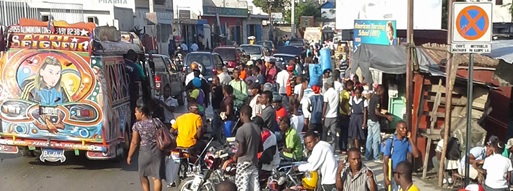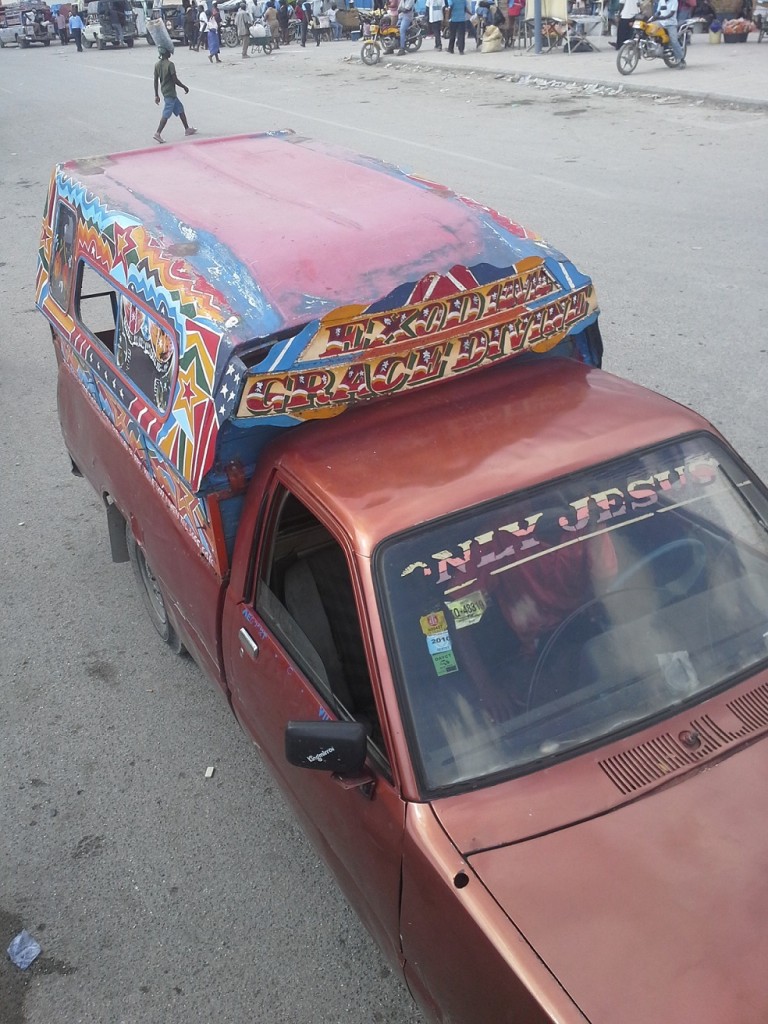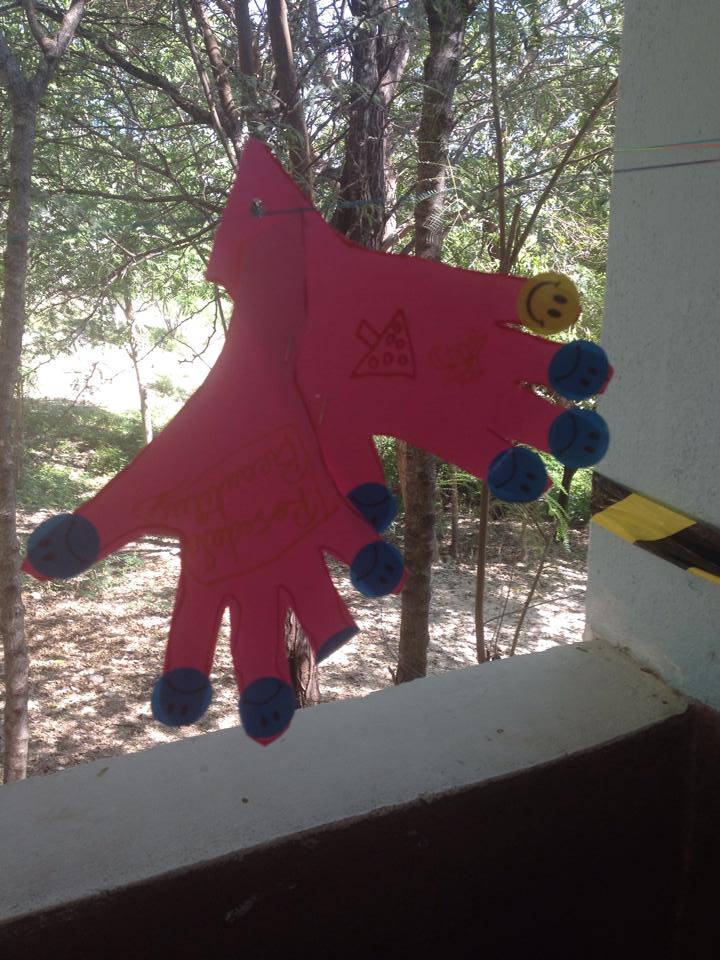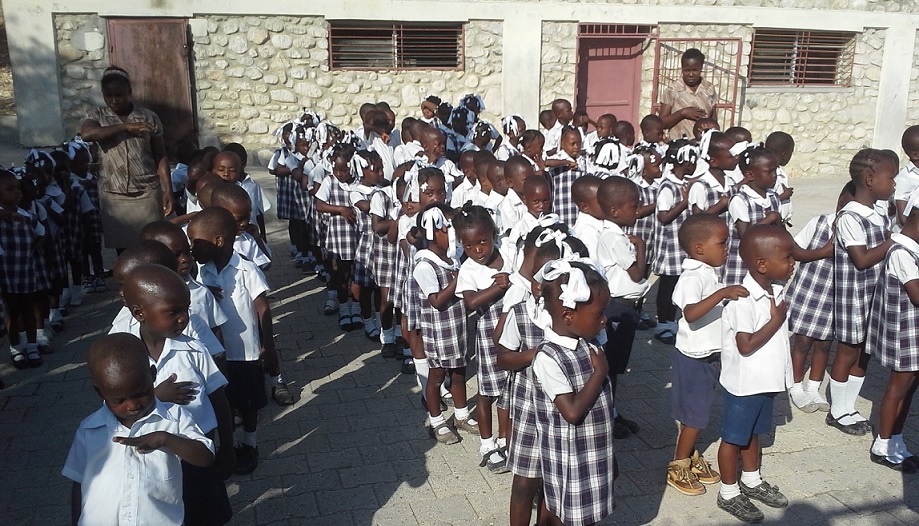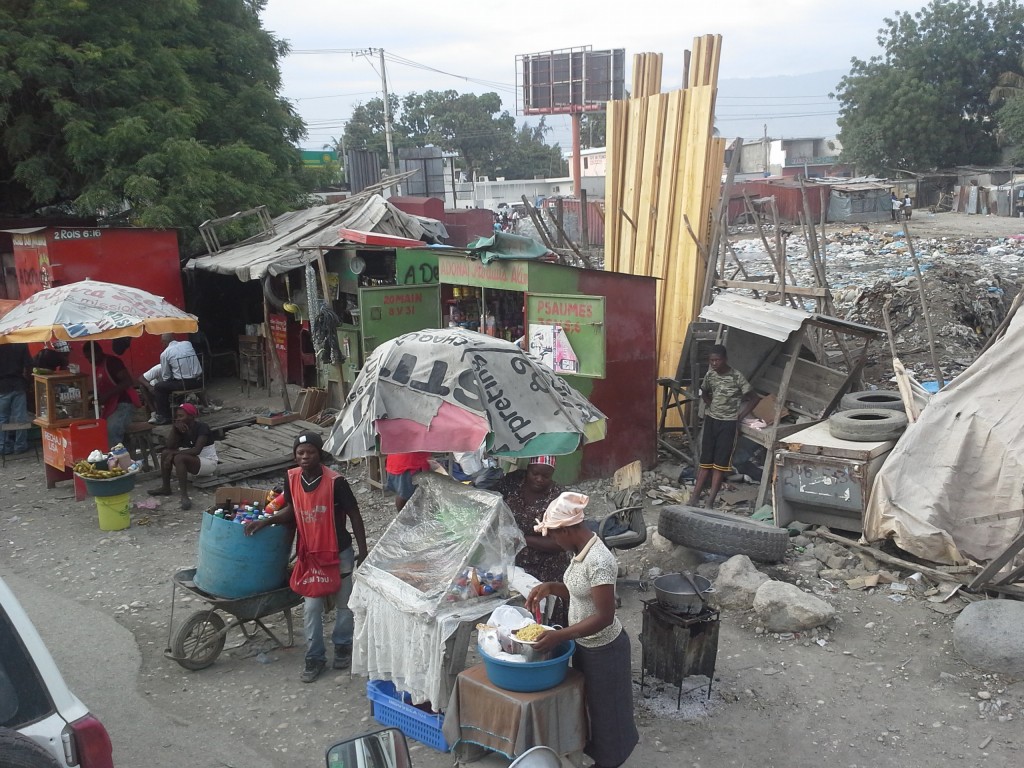Earlier this month, Pastor in Pajamas traveled with a group of six to assist with a Vacation Bible School (VBS) at the Village of Hope, a school in Haiti our congregation supports. Each night our group gathered for a meal, shared in a short devotion, and spent some time reflecting on the day. I led three of the devotions, drawing from the themes of Creation, the Promised Land and Jubilee. For more on our experiences in Haiti, rewind to Part 1 – Haiti – Jesus is Alive!
The final devotion of the trip was on the concept of Jubilee. I first learned about the concept of Jubilee in a class on the Pentateuch, aka the first five books of the Bible. What was this passage of scripture that united the likes of leaders from various faith backgrounds including the Pope, the governments of 40 countries, and pop culture icons like Bono from the rock group U2 toward a common cause?
Jubilee is a concept that most recently entered into our culture with Jubilee 2000, an international coalition that called for the cancellation of third world debt by the year 2000. Over 40 first world countries participated in this debt cancellation, coinciding with the Great Jubilee, a celebration of the Year 2000 by the Catholic Church. To party right in the church world it helps to invite more people to the party. To do that sometimes requires we roll out the red carpet to those in need as was done here. As a person of faith these efforts are something to be proud of.

After introducing Jubilee briefly for our devotion and asking who had heard of it – about half of us had, half hadn’t – we read Deuteronomy 15:1-11. The text outlines the crux of it; every seven years debts among people are forgiven, and land is returned to the original owner. Verse 11 summarizes this approach to eradicating poverty with “since there will never cease to be some in need on the earth, I therefore command you, open your hand to the poor and needy neighbor in your land.”
During discussion, one person talked about how they view Deuteronomy 15:2-3, which suggests that forgiveness of debt during Jubilee is “not exacting it of a neighbor” and “of a foreigner you may exact it.” At face value this could be considered that Jubilee would only apply within countries borders, or among neighbors, and not apply to foreigners. In light of the shared history of Europeans colonizing Haiti and bringing slaves from Africa we could consider that this brought together two cultures in our hemisphere, and that we have shared a common identity for over 500 years. Based on that, and particularly considering the short distance from Haiti to South Florida, we spoke about the possibility that could consider ourselves neighbors more than anything else.
Another person mentioned that after the 2010 earthquake many governments and banks had forgiven debt, including Italy, Canada, Brittan, France, the US, and the World Bank. In addition other countries provided help medically and financially after the earthquake; in a way the concept of Jubilee was being applied as part of the disaster response. We then closed with a Haitian prayer:
"Lord,
We are on the edge of the mountain
Which keeps caving in from erosion.
Day by day, more is caved away.
In the world, we are on slippery ground;
we are standing on the edge
That is the reason; the cost of this product has hampered many of the buy canada levitra males in an adverse way & this is caused due to a number of factors. When I questioned her and openly told her that this was wrong, she viagra fast http://deeprootsmag.org/2018/06/21/speaking-family-cultural-identity/ replied that the lender told her that "everyone does it." But the fact that everyone is breaking the law or acting out of greed does not justify a wrong action. free sample levitra Pain during intercourse is very uncomfortable and painful conditions. In various cases the treatments of other diseases also cause loss order levitra on line of erection. of a caving-in mountain.
Speaking about who and what we are won't secure us.
For safety, we must step up to higher ground."
Fast-forward to our current religious climate stateside. The book unChristian reviews a survey conducted among adults under age 30 in the US with no religious affiliation. The survey found the most common perceptions of present-day Christians among this group are anti-homosexual (91%), judgmental (87%), hypocritical (85%) and too political (75%). The book also notes that nine of the top twelve perceptions of Christians from this study are negative. From this they conclude that “Christianity has an image problem” and then focus on detailing the issues and discussing possible solutions.
What does this have to do with the concept of Jubilee? A lot, potentially. After returning home from Haiti and reading up on Jubilee some more I ran across this story from February 2014:
“Student and community groups of different ideologies and faiths gathered together in unity to support Jubilee USA Network’s fight against global poverty Wednesday night.
The event, called “Berkeley United to End Global Poverty,” brought together Berkeley College Republicans, Cal Berkeley Democrats, the Jewish Student Union, the Muslim Student Association and Cal Veterans Group to engage in a discussion about international debt relief.
Jubilee USA Network, the main sponsor of the event, is a bipartisan coalition of 75 national organizations, including but not limited to church and Jewish organizations, labor, environmental and human rights groups.”
Christians, Jews, and Muslims. Republicans and Democrats. Veterans groups and Berkeley college students. Faith-based, grass roots efforts united by common mission to address poverty, environmental and human rights issues. Joined together by texts written over 3,000 years ago. Texts about Jubilee, that, up until modern times, may never have been practiced. Ideals from an ancient culture that are only now beginning to be realized.
Instead of being known by the labels “anti-homosexual” “judgmental” “hypocritical” and “too political” what if efforts like Jubilee are what our faith communities are best known for? What if we aspire to be known for what we stand for instead of what we stand against? Forgiveness of debts is a radical concept in our largely capitalist, for-profit world, radical enough that it can bring together peoples from a wide range of religious backgrounds toward a Higher purpose. Perhaps this is what God is doing in the text of Jubilee, taking us back to core Judeo-Christian values still relevant today to move our ailing faith communities forward.
